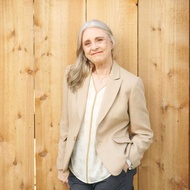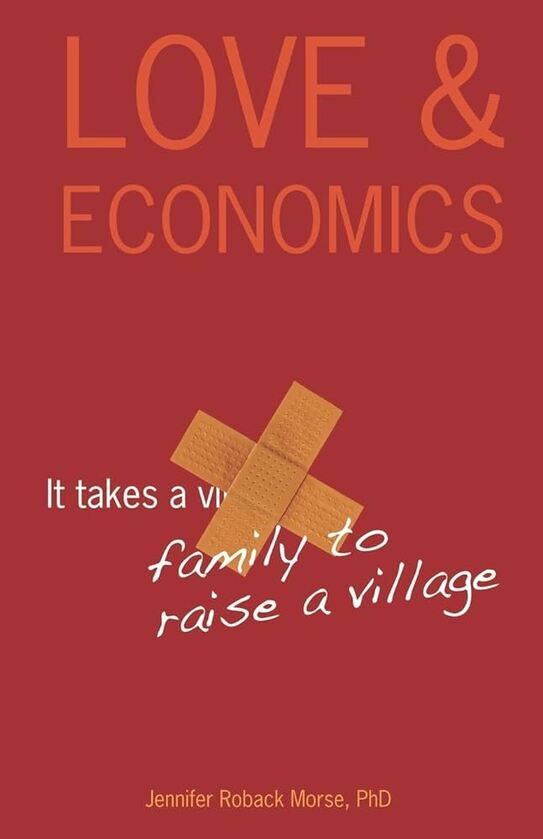This is an exceprt from Dr. Morse's Book: Love and Economics. Purchase your copy from the Ruth Institute book store.
The premise of the book is that men and women alike spend excessive time at work because they are more comfortable there than at home. The people interviewed for the book found the workplace to be emotionally safer and more ful- filling than their own homes.
To the extent that this provocative thesis is true, it is very sad and presents a bold challenge to anyone who would theorize exclusively about the economic and political spheres of life. What kind of “good life” is it that promises economic prosperity and political liberty if we cannot enjoy those blessings in the company of those we love? If we are running away from home, where are we going? If we run away from the people whom we love and who love us, to whom shall we run?
All too often, people end up running to the government or to other impersonal institutions. Can we really believe that the numerous calls for government support for divorce and single parenthood would have gotten off the ground if everyone were happy in his family? These proposals have some credibility because everyone can think of someone he knows who is unhappily married. Similarly, the proposals to assign ever greater responsibility to state-run schools for ever more detailed aspects of child development derive much of their appeal from the fact that everyone can think of someone who is not doing such a great job of caring for her kids.
I believe that my proposals for living inside a loving family are not only good for society in some grand sense but also for the individuals themselves. I do not think that I will get very far in persuading people of that unless I acknowledge that some of what I advocate is in fact costly to act upon. It is more persuasive and more truthful to admit that these things are costly and to explain why the costs are worth bearing. I take as my role model in this regard one of the great twentieth-century heroes of economic liberty, Milton Fried- man. Friedman spent many years arguing for a stable and predictable monetary policy as both the cure for inflation and one of the necessary foundations of a prosperous economy. His critics pointed out that slowing the growth of the money supply would create hardship in the form of unemployment and economic dislocation. If Friedman had responded by claiming that there would be no unemployment, his critics would have dismissed him as a lunatic (which they probably wanted to do). Instead, he agreed that there would be costs to his proposals, but he showed why he expected the costs to be short term and the benefits to accrue over a longer term. He patiently, over the course of many years, continued to explain why the short term costs would be worth bearing. Inflation is no longer a serious economic problem in this country, in part due to Friedman’s candor and persistence.
A limited government and free market cannot exist without a substantial component of self-restraint among the citizenry. This internalized ethic cannot come into existence in the absence of loving families taking personal care of their own children. Scholars sometimes conceptualize the promise-keeping ethic as though its primary impulse were rational and its primary foundation were utilitarian. I believe this is a mistake. We academics have always lived in a society in which most people already lived by these basic norms.
But it seems that promise keeping for purely rational and utilitarian reasons cannot supply the foundation for contracts and ethical behavior that a free society really requires. For there are many occasions on which it is privately rational to break promises and contracts. When these temptations arise, something more powerful and more primal than rational calculation must overrule the urge to follow one’s own self- interest, narrowly defined. The internal voice must say “We don’t do that kind of thing” before the calculation process ever gets started. That internal voice is the voice of the lov- ing parent: the parent who proved trustworthy, long before we ever even could begin to demand proof or reasons for anything.
It is not suffcient to reduce family obligations to a spe- cies of contractual obligations which may be renegotiated at will by consenting adults. The children who result from the union are not consenting adults, by definition. The needs of the children are not simply social constructs that can be redefined for the convenience of the adults. Some childhood needs are universal and non-negotiable.
We are not free to choose any type of social arrangements, for some social arrangements are self-contradictory and unsustainable. Every advocate of the free market and limited government knows that we are not “free to choose” a prosperous society that has no private property rights. I would add that neither are we free to choose a society in which every generation completely renegotiates its defini- tions of family relationships, obligations, and virtues. Some familial obligations are inherent in the relationship of parent and child. Some virtues are indispensable.
Love is the key to fulfilling these obligations and inculcat- ing these virtues. Love of the parents for the child keeps them engaged in the never-ending job of meeting the child’s needs. Love of the parents for each other keeps them working as a team so they are not overwhelmed by the task.
The child learns to trust his parents not because he reasons from first principles that they are generally reliable sources of information. He trusts them because their loving actions have allowed him to feel safe. The loving act takes the place that a rational argument might take for an adult: it is utterly persuasive. From the parents’ actions toward him, he learns that making a generous first move is not the behavior of a sucker but of the kind of fully human person that he would like to be. From their love of each other, he learns that cooperation between people is not only possible but quite wonderful.
Economics has been a successful social science because it focuses on things that are true: human beings are self-interest- ed and have the capacity for reason. But it is equally true that we have the capacity to love. This capacity is no less human and no less defining of who we are. Too much of our public discourse has proceeded as if these two great realities of the human condition, reason and love, were in conflict with each other. The Right favors the cold, calculating, tough-minded approach of the intellect: man is essentially a Knower. The Left favors the warm, fuzzy, emotional approach of the heart: man is essentially a Lover. Yet the Left at its most extreme has given us the impersonal state and its bureaucracy as the answer to social problems. At the same time, the Right at its most extreme has given us the irrationality of trying to reduce man to the sum of his bodily needs.
We sometimes even see this dichotomy expressed in terms of gender. Men are rational; women are emotional. Yet the point of marriage is to help people cross that divide. We marry someone different from ourselves in part because he or she will help us moderate ourselves.
Inside the home, the family as a whole has the benefit of being able to call upon both these deep realities of the human condition. Mother may very well react to her son’s stayingout past curfew by worrying about his safety and smothering him with hugs when he finally gets home. Father may very well calculate that it is in his son’s long-term interest to get the verbal equivalent of a swift kick in the pants. The son probably needs both. Marriage at its best allows people to cross this divide, at least inside the home.
It is time to cross this divide in the sphere of public discourse as well. The consequences of going off the deep end into either the direction of love or reason and ignor- ing the other can be grim indeed. The French Revolution raised an altar to the “Goddess Reason.” But that revolu- tion, putatively based on reason, produced one of the most irrational, chaotic, and bloody periods in French history. The Russian Revolution tried to establish the dictatorship of the proletariat in which everything would be owned in common. That revolution produced oceans of blood and ushered in a new period of material privation unequaled even in Russian history.
We might argue that the American Revolution was the most successful of the modern revolutions because it pre- served the underlying social and cultural order even while it created reasonable economic and political institutions. The family was surely among the key components of that underlying cultural order. Families were then and are now held together by a thousand ties of affection, obligation, and habit. The love in these families was and is the kind of love I have talked about: willing the good of another. This is love that is more than mere sentiment and more than the erotic urges of the body. Love is a decision.
Like all decisions, the decision to love can be guided by reason. This would seem to be the key to avoiding the extremes of trying to build a society exclusively on either the intellect or the heart. Love guided by reason and rea- son informed by love are more realistic and therefore more humane approaches. The tragic history of the last two centuries coupled with the relative success of the American experiment suggests that it would be prudent to avoid either extreme of trying to build a society on reason alone or on sentiment alone.
What will we have then? We will have a society in which people can work, be productive, and enjoy material prosperity—and at the same time a society in which people can relax into the comfort of those who love them and the comforts of home. It will not be a perfect society. But it might be a society in which families stay together and work out their problems. We will have a society that is worth living in—and worth dying for. In short, we will have a civilization of love.




















